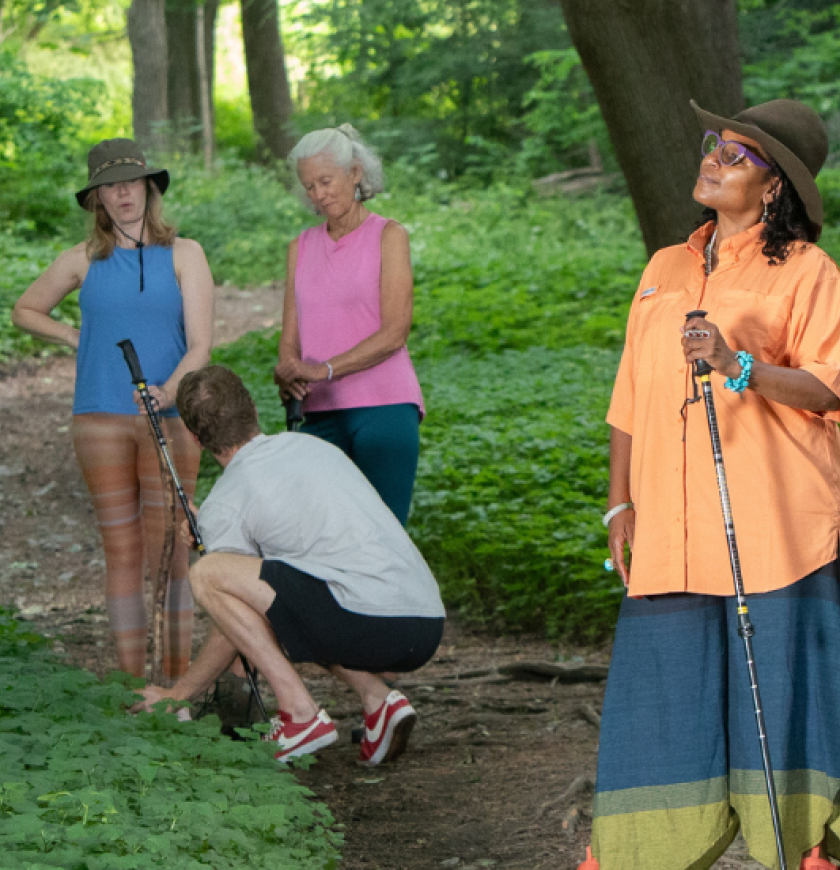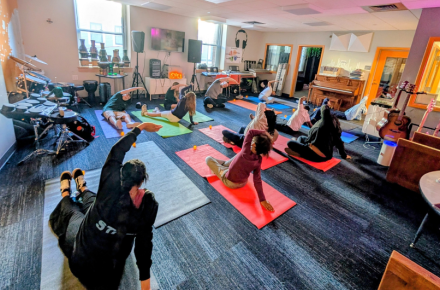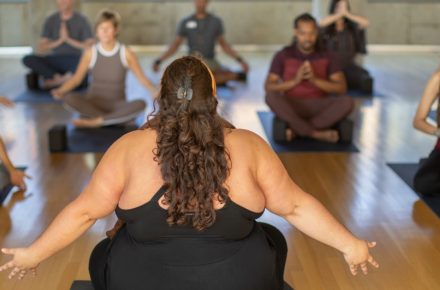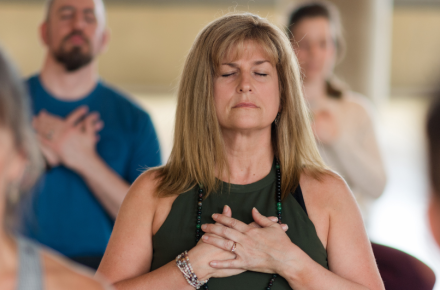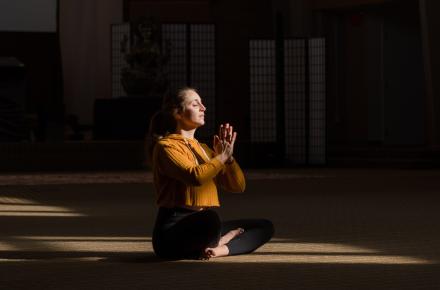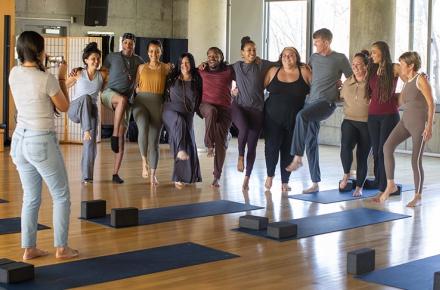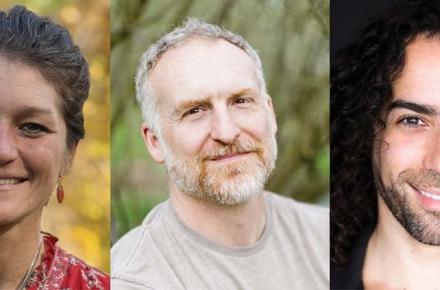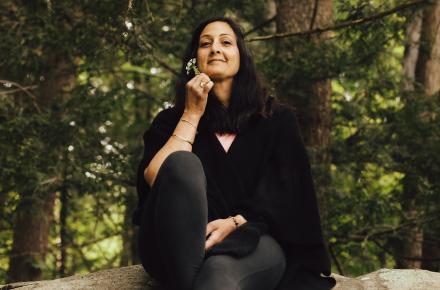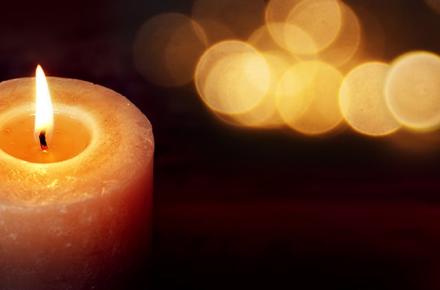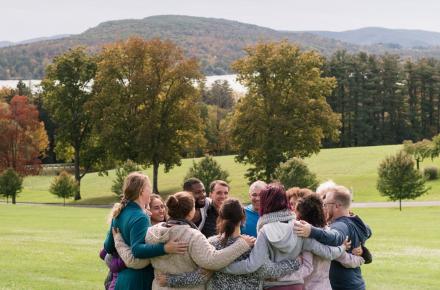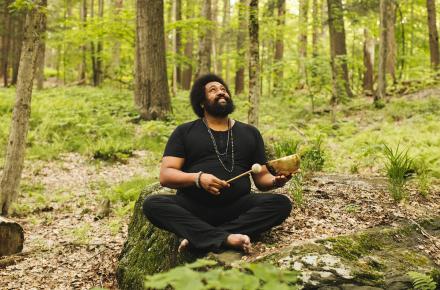Finding My Guru
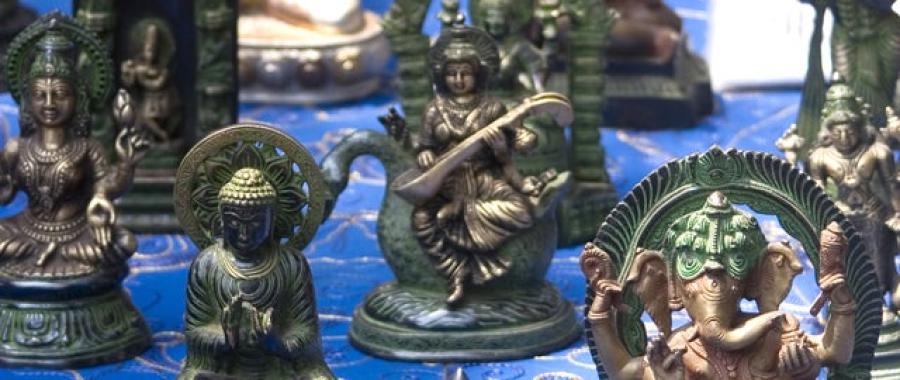
by Tresca Weinstein
I stared into the eyes of the guru, set deep within his lean brown face. I saw no particular warmth there, nor any impatience—though I had been near the end of the long line of people he was scheduled to meet with that day. Did he never tire of hearing about our petty struggles, of silently watching our earnest faces, filled with expectation and hope? He seemed neither weary nor especially interested. The large sitting room, its west-facing windows looking out toward the Pacific Ocean far below our mountain ashram, was empty except for the two of us. He sat cross-legged on the carpet with a child-size chalkboard—his only method of communication—balanced on his knee. I tried not to fidget as I sat across from him, attempting to put my question into words.
The simplest phrasing of what I wanted to know had already been coined by the Clash: Should I stay, or should I go? At 24, I had been traveling for three years, tentatively putting down roots in each place I ended up—a Seattle house-share with a college friend, a Wisconsin apple farm, a Sufi camp in the Italian Alps, a retreat center in the Hudson Valley—before pulling them up again and moving on. I’d been living at a California ashram for six months, and I could feel that I was at a crossroads. I could nourish the beginnings of a life here, the relationships and meaningful directions that were on the verge of blossoming, or I could pick up again and head home to the East Coast, back to my family, my childhood friends, and a sense of comfort, familiarity, and belonging.
I don’t know why I thought the guru could help me. I came of age in a spiritual community with a charismatic leader who was worshipped and adored, and what I noticed most as a child was the difference between the way people acted around him (loving and peaceful) and the way they acted the rest of the time (like real people, i.e., just as irritable, judgmental, and imperfect as I was). Seen through the black-and-white lens of childhood, their dependence on this man appeared weak and desperate. The whole set-up seemed like a sham. I was drawn to spiritual communities, and to the self-exploration they entailed, but I had always thought of myself as allergic to gurus.
But living in this ashram, where my dorm-mates had framed photos of the guru on their bureaus instead of pictures of loved ones, I had begun to question that view. Perhaps they were onto something that I had been too resistant to benefit from. Maybe surrender to a teacher was the best route toward self-knowledge. Years later, while working at Kripalu during the ashram days, I heard a resident describe her connection with the guru “like being in love.” Living here among all these lovers and their beloved was like being the odd one out at a teenage make-out party. So, I signed up to meet privately with the guru on the one day each month that he reserved for these tête-a-têtes.
I don’t remember exactly how I finally phrased my question, or what words the guru scratched out in answer on his chalkboard. What I do remember was the acute sense of disappointment that followed. He had told me nothing—nothing to catalyze an awakening, or focus my thoughts, or open a door on something I hadn’t known before. His words held no deliverance or guidance for me. As I walked through the ashram’s garden, its colors glowing in the still-crisp spring sunshine, I felt alone, lost, confused, betrayed.
And yet, as I stood looking out toward the sliver of glittering sea on the horizon, something else billowed up inside me, like a rising wave. What I felt was the clear certainty that I must, and should, depend upon my inner knowing, my own voice. I held within me all the wisdom and understanding I needed; I had only to listen and trust. This was the gift the guru had given me—he had given me back to myself.
Along with that realization came another: I didn’t want to live 3,000 miles away from my parents and my sister. We’d always been close, and I had needed to prove to myself that I could build a life without them. Now I knew that I could, and also that I could freely choose not to. Not long after, I left the ashram and came home.
Tresca Weinstein is Editorial Manager at Kripalu.
© Kripalu Center for Yoga & Health. All rights reserved. To request permission to reprint, please e-mail editor@kripalu.org.

